18th IEOM Global Engineering Education
Detroit, Michigan, USA, August 10-14, 2020
IEOM Society International addresses the issues of Global Engineering Education. There are various levels of readiness of engineering graduates from various parts of the world. One of the main themes is how to reduce the readiness gap of engineering graduates around the world. The special focus is given to Industrial Engineering and Manufacturing Engineering including Engineering Management. Are the engineering graduates ready to take on the challenges of the current global economy? With the great success of Global Engineering Education Series of last IEOM conferences, IEOM Detroit Conference will have a dedicated session for the 18th Global Engineering Education where distinguished speakers will discuss the readiness of engineering graduates for workforce around the world. Thirty six featured speakers will be from various part of the world to address engineering education challenges and opportunities.
Global Engineering Education Topics can be related on:
- Accreditation
- Learning Assessment
- Problem based learning
- Project based learning
- Active collaborative learning
- Student learning assessment
- Teaching and learning
- Pedagogy
- Curriculum improvement
- Innovation and entrepreneurship
- Global engineering education challenges
- Industrial engineering, manufacturing engineering, systems engineering, integrated engineering, reliability engineering, quality engineering and similar Education
Each speaker needs to submit a title of the talk, photo and a short bio as well as power point presentation. All will be included in the IEOM 2020 Detroit Conference proceedings. If you are interested to be distinguished feature speaker, please contact info@ieomsociety.org for details.
All speakers need to register for the 5th NA IEOM Detroit Conference. Please pay your registration fee ONLINE:
https://www.xcdsystem.com/IEOM/attendee/index.cfm?ID=r1Asg1V
DISTINGUISHED SPEAKERS
All Times are USA Eastern Standard Time
August 10, Monday
Global Engineering Education I
4:00 – 5:00 pm – Zoom Meeting Room 1
Session Chair: Dr. John Blakemore, Adjunct Professor at University of Newcastle, Sydney, Australia
4:00 pm – 4:30 pm (Monday, August 10)
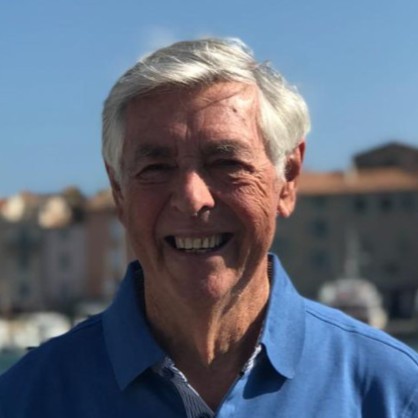 Dr. John Blakemore
Dr. John Blakemore
Adjunct Professor at University of Newcastle
Blakemore Consulting International
Sydney, Australia
Industry 4.0 and its Vision
Dr. Professor John Blakemore originally completed a part time BSc in Metallurgy while working in the steel industry. Later he won an International Scholarship to study a PhD on the electronic structure of metals and alloys and the effect of nuclear irradiation and hydrogen. He was then employed as a Research Scientist at the Atomic Energy Commission and later Chief Metallurgist (R&D). His team developed numerous world first ideas and processes and also the first advanced quality system for defence purposes in Australia in 1981. Earlier work with his team led and assisted in the successful commercialisation of Zincalume coated steel called Colorbond. He set up his own company in 1982 and then developed and helped commercialise a range of processes including two new galvanizing processes, and a new process for Aluminium filtration. He has successfully improved concrete manufacture plastic extrusion, Aluminium casting, welding operations and structural steel manufacture. He had a wide range of International clients including, Panasonic, Canon, Honda, Speedo, CSIRO, BHP, Alcatel, Duracell, Cochlear, Pirelli and others. He wrote the first course in Lean Manufacturing in Australia in 1991, and the first course in Industrial Arts in 1977 and has authored 6 books. He has taught part time at various universities from 1964. His most recent work was leading a team of mathematicians and scientists and engineers successfully prototyping a new scanning device for cervical cancer. He also invented a new surgical procedure to save his own eyesight in 1991. He was the National President of the Australian Manufacturing Society, and has served on numerous boards and is the fellow of numerous professional societies. Currently he is working at the University of Newcastle and assisting a company developing a new tufting process for carpet and researching his next book.
4:30 pm – 4:50 pm (Monday, August 10)
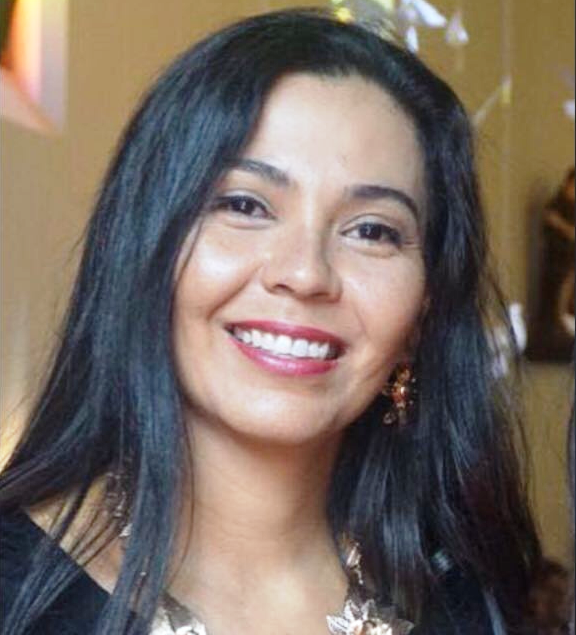 Dr. Jenny Díaz-Ramírez
Dr. Jenny Díaz-Ramírez
Engineering Department Professor
Universidad de Monterrey
Monterrey, N.L., Mexico
Gamification of an Engineering Course
Dr. Jenny Díaz-Ramírez is an industrial engineer, graduated from Universidad del Valle, in Cali, Colombia. She studied master programs at Universidad de Los Andes, in Bogotá and at Georgia Institute of Technology, in Atlanta, US. In2007 she obtained her Ph.D. in industrial engineering from Tecnológico de Monterrey, in Mexico. She has been a professor at Tecnológico de Monterrey, and Pontificia Universidad Javeriana, Cali, Colombia, and currently, is a researcher professor in the Department of Engineering at the University of Monterrey. She teaches courses in industrial engineering at undergraduate, graduate, continuing education, and doctoral levels. She is the author and co-author of scientific articles on optimization and statistics applied to transportation, fuel consumption reduction strategies, operations and logistics, gamification, and air quality. She is a member of the National System of Researchers of Mexico -SNI, level 1 since 2015.
4:50 pm – 5:10 pm (Monday, August 10)
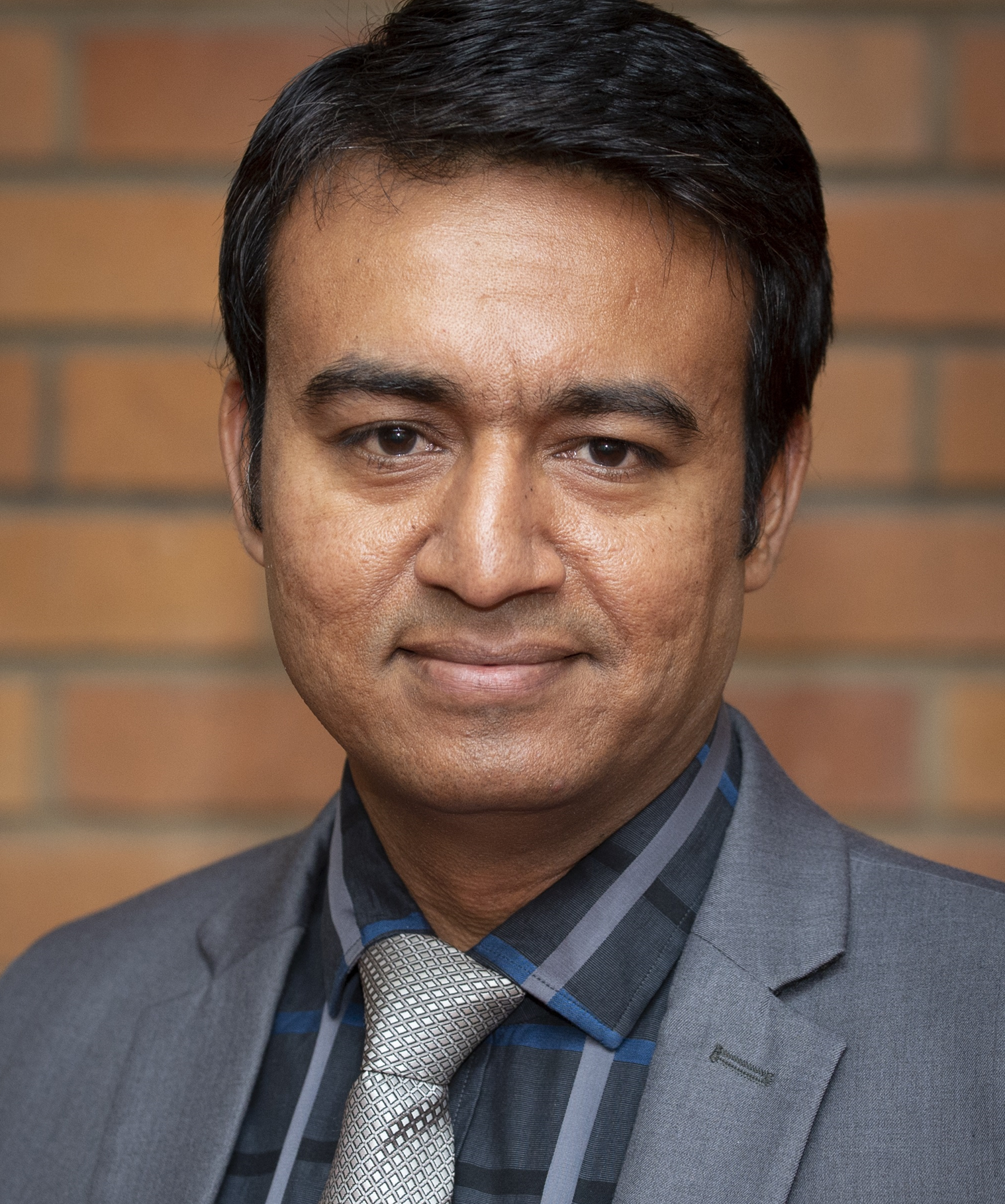 Dr. Kapil Kupta
Dr. Kapil Kupta
Associate Professor
Department of Mechanical and Industrial Engineering Technology
University of Johannesburg
Johannesburg- Republic of South Africa
Some Insights on Industry 4.0
Kapil Gupta is working as Associate Professor in the Dept. of Mechanical and Industrial Engineering Technology at the University of Johannesburg. He obtained Ph.D. in mechanical engineering with specialization in Advanced Manufacturing. Advanced machining processes, sustainable manufacturing, green machining, precision engineering and gear technology are the areas of his interest. He has authored several SCI/ISI Journal and International Conference articles. He has also authored and edited 15 international books on hybrid machining, advanced gear manufacturing, micro and precision manufacturing, spark erosion machining, and sustainable manufacturing etc. that have been published by the renowned international publishers such as Elsevier, CRC Press, and Springer. He is serving on the editorial boards of the Scopus-indexed journals, Journal Européen des Systèmes Automatisés and Mathematical Modelling of Engineering Problems; and international journals, Journal of Micromanufacturing (Sage publications UK) and Int. Journal of Precision Technology (Inderscience). He has delivered keynote and distinguished speeches in several international conferences and symposiums. He is a Y rated researcher by National Research Foundation ‘NRF’ (Science Agency) of South Africa. He has secured funding from international agencies such as Royal Academy of Engineering (UK) and involved in national and international research projects. He is a registered with Engineering Council of South Africa as a professional engineering technologist. He is also a member of South African Institute of Mechanical Engineering (SAIMechE) and South African Institute of Industrial Engineering (SAIIE). Currently, he is hosting two postdoctoral research fellows, and supervising some masters and phd students who are busy conducting research in advanced and sustainable manufacturing areas. He obtained PG Diploma in Higher Education and also working towards sustainable university and engineering education 4.0.
August 11, Tuesday
Global Engineering Education II
4:00 – 5:00 pm – Zoom Meeting Room 1
Session Chair: Prof. Vitor Mendes Caldana, Federal Institute of Sao Paulo (IFSP) – Sorocaba Campus, Sao Paulo, Brazil
4:00 pm – 4:20 pm (Tuesday, August 11)
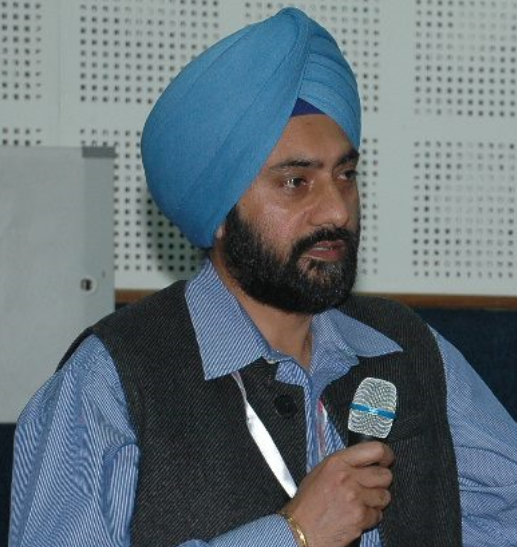 Dr. Sarbjit Singh
Dr. Sarbjit Singh
Hanford, California, USA
Former Associate Professor and Head
Department of Industrial & Production Engineering
Dr. B.R. Ambedkar National Institute of Technology (NIT)
Jalandhar, Punjab, India
Vice President, NITJ Alumni Association
Dr Sarbjit Singh has obtained PhD in the Industrial & Production Engineering with specialization in Sustainable Supply Chain Management from National Institute of Technology (NIT), India and has his undergraduate and Graduate in Industrial Engineering. He is having 24 years of Teaching, Administrative and Consulting Experience as Assistant Professor, Associate Professor, Associate Dean, Deputy Dean, Environment Engineer, Department Chair and Chartered Engineer. During this period he was involved in Teaching & Learning, Academic Advising, Academic writing, Research and Consultancy, Student Affairs, Recruiting, Lab development, Curriculum design, ERP System Management, Examination evaluations, Startup incubation mentoring, Faculty development, Library affairs, Alumni affairs, Fund raising, Student admissions, Student Housing, International students facilitation, Industrial consultancy, Organizing Convocations / Conferences / workshops / skill development courses. He is a continuous learner and earned the executive education certifications from elite institutions like Harvard Business School (USA); Indian Institutes of Management (IIM Ahmedabad, IIM Bangalore, IIM Kozhikode-India). He has traveled as speaker across the world in different international conferences. He also published more than 50 research papers in journals/proceedings/book chapters/manuscripts. He has supervised Three PhD research dissertations, thirty-five Post-Graduate Thesis dissertations and twenty under- Graduate Industry projects. He is actively involved in International Ergonomics association as co-Chair of ECEE technical committee and also life member of various professional organisations.
4:20 pm – 4:40 pm (Tuesday, August 11)
 Dr. Jean Ann Larson, FACHE, LFHIMSS, FIISE, DSHS
Dr. Jean Ann Larson, FACHE, LFHIMSS, FIISE, DSHS
Chief Leadership Development Officer
The University of Alabama at Birmingham (UAB) Health System &
Senior Associate Dean for Leadership Development at UAB’s School of Medicine
Birmingham, Alabama
Challenges for Leaders in Healthcare during the Pandemic and Beyond
Jean Ann Larson is the chief leadership development officer for the University of Alabama-Birmingham Health System and the Senior Associate Dean of Leadership Development in the School of Medicine. She has over 25 years’ experience as a senior leader, organizational and leadership development expert and process improvement consultant. Larson holds a doctorate in organizational change from Pepperdine University and an MBA in international management from Thunderbird, the Garvin School of International Management and a bachelor’s degree in industrial engineering from Wichita State University. She is a fellow of the American College of Healthcare Executives and the Institute of Industrial and Systems Engineers and is a diplomate of IISE’s Society for Health Systems. She has edited and authored several books and published many articles. Her most recent book is Organizational and Process Reengineering Approaches for Health Care Transformation, Published August 2015, CRC Press, Winner of the 2015 HIMSS Book of the Year Award.
4:40 pm – 5:00 pm (Tuesday, August 11)
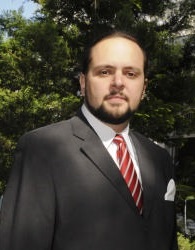 Prof. Vitor Mendes Caldana
Prof. Vitor Mendes Caldana
Federal Institute of Sao Paulo (IFSP) – Sorocaba Campus
Sorocaba, Sao Paulo, Brazil
Implementing a Post-Graduate Industry 4.0 Course : A case Study during COVID-19
Began his academic career with a technician course in Electronics from Liceu de Artes e Ofícios (1999) followed by an undergraduate degree in Electronic Engineering from Universidade Presbiteriana Mackenzie in 2004. In 2016, finished his Masters (M.Sc.) course in Industrial Engineering with the Quality of Engineering Education and its Relation to Regional Development as his area of research. In the industry, from 1999 until 2016, started in Caltronic Automação Industrial, a service-based company in Brazil that represents American and European automation equipment for the printing industry, His last position at the company was Service and Projects Manager. Was responsible for managing not only Brazil but the whole of South America, with services performed also in USA and China. During his professional career in the Industry, took several courses in USA and Europe in Automation and dedicated equipment maintenance. In 2016 left the industry for full-time dedication to teach. In 2014 began his teaching career in FIEB as a substitute teacher for the Electronics Technical Course. In 2016 moved to IFSP to implement the Electronics Technical Course in the city of Sorocaba and has been engaged with this project since, teaching a variety of courses in electronics. In 2018 began his Research Group in Industry 4.0 and in 2019 was nominated to the Global Council of IEOM for South America.
August 12, Wednesday
Global Engineering Education III
1:00 – 2:00 pm – Zoom Meeting Room 1
Session Chair: Dr. Ilham Kissani, Al Akhawayn University, Ifrane, Morocco
1:00 pm – 1:20 pm (Wednesday, August 12)
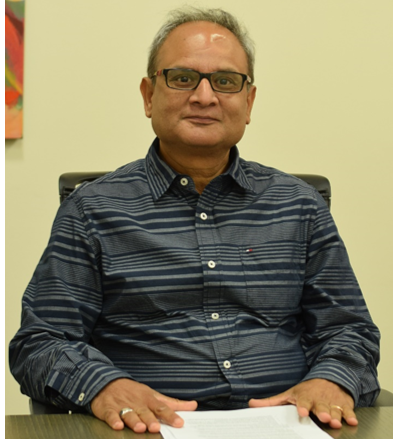 Dr. Shaligram Pokharel
Dr. Shaligram Pokharel
Professor
Department of Mechanical and Industrial Engineering
Qatar University
Doha, Qatar
Implementation of Project Based Learning for Project Management
Shaligram Pokharel is a Professor of Industrial and Systems Engineering program at the Department of Mechanical and Industrial Engineering, in Qatar University. Prior to joining this university, he held academic positions in Nanyang Technological University, Singapore. He holds B.E.(Honors) in Mechanical Engineering from the Regional Engineering College (Kashmir, India) and MASc.and Ph.D. in Systems Design Engineering from the University of Waterloo, Ontario, Canada. His research areas are focused in energy planning and modeling, low carbon supply chains, engineering management, reverse logistics, and emergency and humanitarian logistics. Dr. Pokharel has obtained more than US$ 2,000,000 research grant in various areas of engineering management. He has published more than 100 papers in journals and conferences. Dr. Shaligram brings the experience from industry, government, and consulting to research and teaching. He teaches engineering management related courses in Qatar University. The topic of his presentation would be in the Implementation of Project Based Learning for Project Management.
1:20 pm – 1:40 pm (Wednesday, August 12)
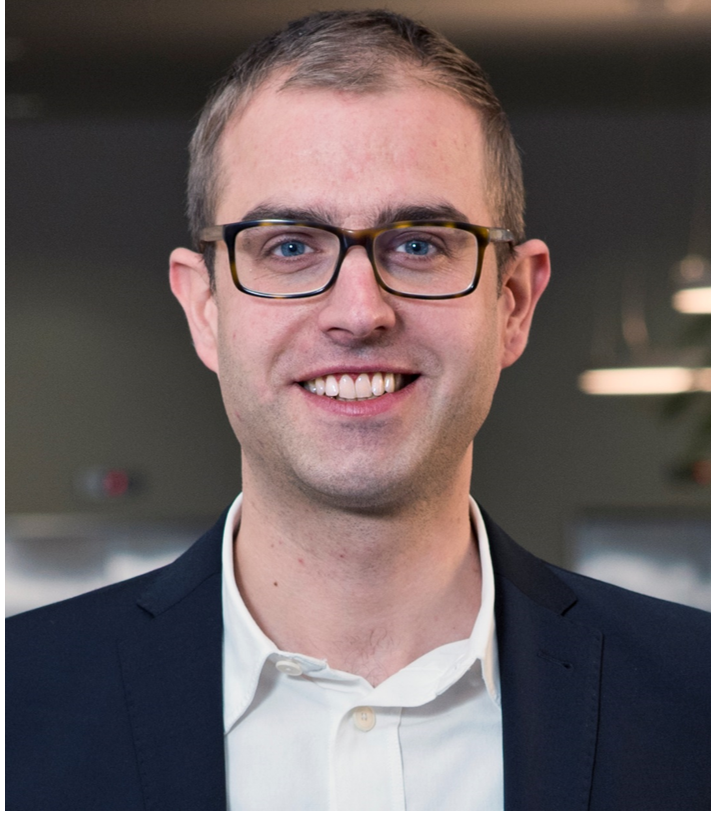 Dr.-Ing. Patrick Dallasega
Dr.-Ing. Patrick Dallasega
Assistant Professor
Industrial Engineering and Automation
Faculty of Science and Technology
Free University of Bozen-Bolzano
Bozen-Bolzano Italy
Industry 4.0 Implications for Future Engineering Education
Patrick Dallasega is an Assistant Professor of Factory Planning and Project Management at the Faculty of Science and Technology of the Free University of Bolzano (Italy). He studied at the Free University of Bolzano (Italy), at the Polytechnic University of Turin (Italy) and got his PhD at the University of Stuttgart (Germany). From 2005 until 2010, he worked in the fields of plant and factory planning in a local food processing industry. Later, from 2012 until 2015, he was employed as Research Associate at Fraunhofer Italia Research where he managed and executed several research projects for private and public customers. Since 2016, he has been employed as Assistant Professor at the Free University of Bozen-Bolzano. His main research interests are in, supply chain management, Industry 4.0, lean construction, lean manufacturing and production planning and control in MTO and ETO enterprises.
1:40 pm – 2:00 pm (Wednesday, August 12)
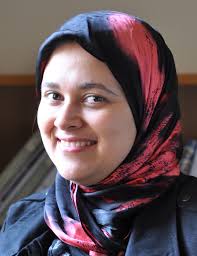 Dr. Ilham Kissani
Dr. Ilham Kissani
Assistant Professor of Engineering & Management Science
School of Science & Engineering
Al Akhawayn University
Ifrane, Morocco
Dr. Ilham Kissani is an assistant professor in the field of engineering management for the School of Science and Engineering at Al Akhawayn University in Ifrane, Morocco. She has served as the main advisor and lead instructor for the undergraduate and MS programs in Engineering and Management Systems since 2010. She has helped create very close ties with the AUI School of Business Administration, which allows both schools to leverage our resources and deliver a greater diversity of courses to students, such as supply chain management and operations management. Her background is diverse and includes industrial experience as well as academic. Her degrees are from INSEA, Morocco (Engineer) and Université Laval, Canada (Master and Ph.D). She has worked with Royal Dutch Shell as a project manager and with Modellium Québec, where she consulted in logistics and supply chainissues. Additionally, Dr. Kissani contributes in research in supply chain management, planning, and operations research. She is a member of ASEM, IEEE, IEOM, IIE, and INFORMS.
August 12, Wednesday
Global Engineering Education IV
4:00 – 5:00 pm – Zoom Meeting Room 1
Session Chair: Fernando Monroy, The University of Texas at El Paso, Texas, USA
4:00 pm – 4:10 pm (Wednesday, August 12)
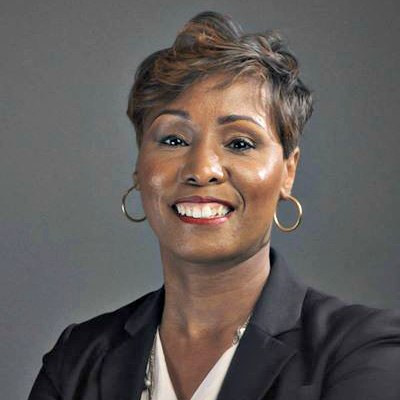 Sibrina N. Collins, Ph.D.
Sibrina N. Collins, Ph.D.
Executive Director
The Marburger STEM Center
Lawrence Technological University
Southfield, Michigan
Dr. Collins is an inorganic chemist and STEM administrator. She began her college career at Highland Park Community College (Highland Park, Mich.), where she earned an associate of science degree in 1990. Dr. Collins later earned a B.A. in chemistry (cum laude) in 1994 from Wayne State University (Detroit, Mich.). She earned her M.S. (1996) and Ph.D. (2000), both in the field of inorganic chemistry, from The Ohio State University under the direction of Professor Bruce Bursten.
As a graduate student at OSU, she received significant training as a photochemist, where she used light to study chemical reactions and photochemically reactive molecules. She later completed a postdoctoral appointment at Louisiana State University (Baton Rouge, Louisiana) with Professor Isiah Warner, where she focused on heart disease research.
Between 2003 and 2006, Dr. Collins was an assistant professor of chemistry at Claflin University, an HBCU (Historically Black Colleges and Universities) in Orangeburg, South Carolina. Her research efforts at Claflin University focused on the crystal-engineering of metal-organic frameworks (MOFs), which have many potential applications as electronic materials. Dr. Collins has also worked as a writer and editor for the American Association for the Advancement of Science (AAAS) in Washington, DC.
From May 2006 to May 2008, she served as the Director of Graduate Diversity Recruiting for the University of Washington (Seattle, Wash.). In this role, she focused on building effective partnerships between STEM (Science, Technology, Engineering, Mathematics) faculty at minority-serving institutions (MSIs) and the University of Washington.
Dr. Collins served as a faculty member in the Department of Chemistry at The College of Wooster (Wooster, Ohio) from 2008–14. At Wooster, her research focused on developing a detailed understanding of the molecular structures, electronic structures, photophysics and reactivity of a selection of late transition metal complexes and exploit this understanding to design effective anticancer agents. The transition metal complexes contained ruthenium (Ru), rhenium (Re), gold (Au) and copper (Cu) metal centers.
Dr. Collins has mentored 17 undergraduate chemistry students and published peer-reviewed articles in high-impact journals such as Inorganic Chemistry, Acta Crystallographia, Journal of Chemical Education, and the Bulletin for the History of Chemistry.
She most recently served as the Director of Education at The Charles H. Wright Museum of African American History, which is the leading cultural institution focused on the African American experience. In this new role, she focused on the science education and social studies programming for the Wright Museum.
Dr. Collins is currently the Executive Director of the Marburger STEM Center (MSC) at Lawrence Technological University. The Marburger STEM Center is the intellectual home of campus-wide STEM initiatives at LTU, which promote inclusiveness, excellence, creativity and innovation.
4:10 pm – 4:30 pm (Wednesday, August 12)
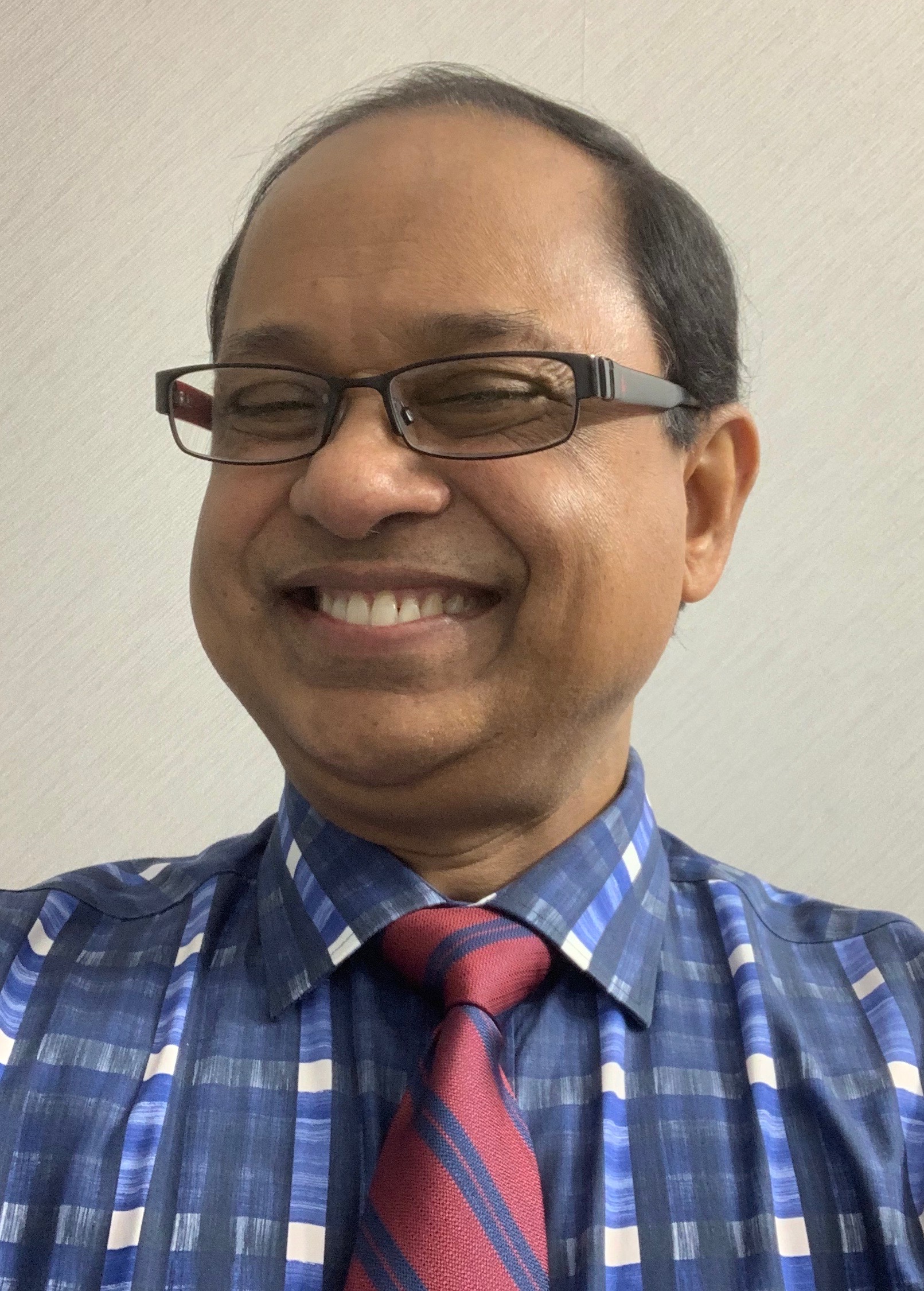 Dr. Harun Rashid
Dr. Harun Rashid
Adjunct Professor
Wayne State University
Detroit, Michigan, USA
Re-Engineering Peer Collaboration Through Cognitive Coaching: Paradigm Shift from Andragogy to Heutagogy
Dr. Harun Rashid earned his M.A. degree from Dhaka University (Bangladesh) and University of Waterloo (Canada); and earned his Ph.D. from Wayne State University (Detroit). He has devoted his career in university teaching and research for over four decades – here and abroad – including Chittagong University and Dhaka University (Bangladesh), University of Waterloo (Ontario), Wayne State University (Detroit), University of Phoenix, Marygrove College (Detroit), and Wayne County Community College (Detroit). He aims at continuing to add more tools to his toolbox toward building strong professional learning communities at colleges and universities. He cares about being culturally responsive, and he continues to strive toward sharpening up his individual educational leadership knowledge, skills, and dispositions. His goal is to ensure consistency and precision in his strategic planning, decision making, and solution seeking. He focuses on enacting system-wide capacity-building processes in his area of concentration in the field of teaching and learning.
In addition, as the Director of Staff Mentoring and Coaching at a public charter school system for about 10 years, Dr. Rashid has been overseeing the faculty coaching, mentoring, professional development, and staff evaluation programs. He has also been conducting professional development training for teachers and instructional administrators. His goal is to assist in building, and being an important and effective part of, an impactful, healthy, growth-producing, innovative, and networked educational system that would ensure mastery-oriented mindset for all students in both core academic content and in the 21st century skills that would prepare them for college and tomorrow’s world of work.
He has published in his areas of expertise – Philosophy and Education. He has been working – for about a decade – as a pre-publication professional reviewer of books published by Oxford University Press, McGraw-Hill Higher Education, and Routledge: Taylor and Francis Group. He is a K-12 educational administrator certified by Michigan Department of Education, and a certified Quality Assurance Review Team Chair of NCA (North Central Accreditation). He served as a panelist (along with two other panelists: David Schmidt, V.P. of Connections Education Inc; and Mack Moore from National Heritage Academies) on a symposium on ESPs, EMOs, and CMOs: What are these education management organizations, and what is it like to work for one at Central Michigan University: The Governor John Engler Center for Charter Schools in April 2014.
Dr. Rashid offered professional development workshops for Michigan Department of Education, Detroit Public Schools, Metro Detroit are Private Schools, APIAVote, Michigan Institute of Professional Psychology, Michigan Association of Public School Academies, Wayne State University, Wayne County Community College, Bangladesh University Grants Commission, Universities in Bangladesh: Brac University, Dhaka University, Chittagong University, Jahangir Nagar University, and CCN University – Comilla.
He has offered professional development workshops for all levels of educators and educational administrators on Differentiated Instruction; Sheltered Instruction Observation Protocol (SIOP); Quality School and Choice Theory; Effective Classroom Management; Learning Styles and Multiple Intelligences; Brain-based Learning; School Improvement; Teaching Critical Thinking; Reach Them Before You Teach Them; How to Get Parents on Your Side; Response to Intervention; Live Event Learning; and High Performing Teacher; Brain Based Ways We Think and Learn; Building Communication and Team Work in the Classroom; Classroom Management: Orchestrating a Community of Learners; Coaching Skills for Successful Teaching; Designing Motivation for All Learners; Discovering the Power of Live Event Learning; Meaningful Activities to Generate Interesting Classrooms; Professional Refinements in Developing Effectiveness; Purposeful Learning through Multiple Intelligences; Successful Teaching for Acceptance of Responsibility; Teaching the Skills of the 21st Century; and Cognitive Coaching: Making Faculty Better, NOT Bitter.
Abstract
Since 1920s, the question of how adults learn the best has occupied the attention of scholars and practitioners as a central question. Hundred years later, we are yet to find a theory or model of adult learning that explains all that we know about adult learners, the various contexts where learning takes place, and the process of learning itself. Instead we have a mosaic of theories, models, sets of principles, and explanations that provide us with the knowledge base of adult learning. Not knowing how the adults learn the best, would keep us away from knowing how to teach them the best. Facilitators of adult learners need to continuously sharpen up some of the facilitating skills that they already have in order to create and maintain a highly productive learning environment in every course they teach in higher education institutions.
The purpose of this presentation is to provide a peer collaboration and support mechanism for professional learning communities in colleges and universities. This is an attempt to provide an overview of the pragmatic foundations of faculty peer collaboration based on the marriage between Cognitive Coaching and the continuum of pedagogy, andragogy and heutagogy. The discussion will include a brief description of cognitive coaching; the pillars of Charlotte Danielson’s Framework for Teaching; and some of the most common pedagogical theories – cognitivism, constructionism, behaviorism, as well as emerging theories such as social pedagogy and heutagogy. In addition, the tenets of andragogy, including its linkages to transformative education and heutagogy as self-determined learning will be discussed. This discussion will also include the concepts of pedagogy, andragogy, and heutagogy as being on the same continuum in teaching and learning, as they are not different in kind.
Our focus will be on peer collaboration among college faculty as it relates to the paradigm shift from pedagogy and andragogy to heutagogy. Teaching is both a science and an art. This presentation will be paying special attention to peer collaboration on the know how of teaching in college through developing trust and rapport with students; utilizing conversation framework for planning and preparing; using differentiated instructional strategies; reflecting/self-reflecting on teaching and learnin; making adaptations and accommodations in the classroom; making decisions on re-teaching; and seeking solutions to issues and problems as they occur in diagnostic, formative, and summative assessments. It will also cover discussion on developing faculty autonomy and sense of community toward enhancing higher levels of efficacy, consciousness, craftsmanship, flexibility, individual accountability, and positive interdependence. Faculty development based on Charlotte Danielson’s Framework of Teaching as it relates to peer coaching, evaluating, consulting, and collaborating will be included. Utilizing the coaching tools of pausing, paraphrasing, posing higher level critical and creative thinking questions, and using data to mediate thinking will be an important part of the discussion as well.
4:30 pm – 4:50 pm (Wednesday, August 12)
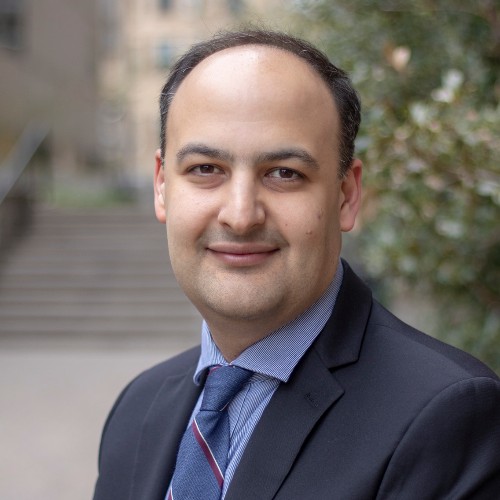 Dr. Saman Hassanzadeh Amin
Dr. Saman Hassanzadeh Amin
Assistant Professor
Mechanical and Industrial Engineering Department
Ryerson University
Toronto, Ontario, Canada
Dr. Saman Hassanzadeh Amin is an Assistant Professor in the Department of Mechanical and Industrial Engineering at Ryerson University. Prior to joining Ryerson University, he was an Assistant Professor of Supply Chain Management at Cape Breton University in Nova Scotia. Dr. Amin has taught several courses at the University of Windsor, Cape Breton University, and Ryerson University in both business schools and engineering faculties. He has developed some courses at those universities. Dr. Amin’s research expertise includes Supply Chain Management, Operations Management, Operations Research, Optimization, Information Technology, and Decision Support Systems. He has published 30 articles in well-known journals, such as “Journal of Cleaner Production”, “Expert Systems with Applications”, “International Journal of Production Economics”, and “International Journal of Production Research”. His publications have received over 1,900 citations to date in Google Scholar. Dr. Amin’s research is externally supported by both NSERC and SSHRC, and includes NSERC Discovery, NSERC Engage, and SSHRC Insight Development grants, displaying his ability to cross disciplines effectively. He has received a number of awards for his work (e.g., Administrative Sciences Association of Canada Conference in 2016).
4:50 pm – 5:10 pm (Wednesday, August 12)
Dr. Fernando Monroy
Student STEAM Success Coordinator
The University of Texas at El Paso
El Paso, Texas, USA
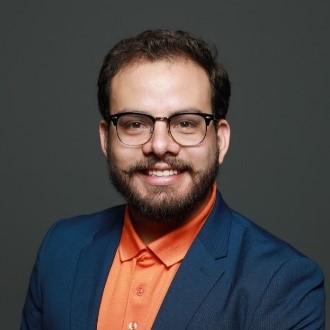
August 13, Thursday
Global Engineering Education VI
7:00 – 10:00 pm – Zoom Meeting Room 1
Session Chair: Dr. Gulnara (Gulya) Abitova, Professor at Almaty Management University (AlmaU), Astana, Kazakhstan
7:00 pm – 7:20 pm (Thursday, August 13)
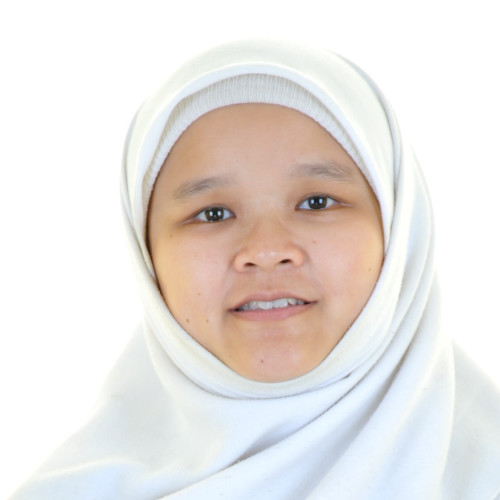 Dr. Fatin Aliah Phang
Dr. Fatin Aliah Phang
Professor
Fellow at the Centre for Engineering Education (CEE)
Universiti Teknologi Malaysia
Johor Bahru, Johor, Malaysia
Fatin Aliah Phang is a fellow at the Centre for Engineering Education (CEE), Universiti Teknologi Malaysia (UTM). She is also an Associate Professor at the School of Education, Faculty of Social Sciences & Humanities, UTM. She joined UTM in 2003 as a Tutor and later continued her study in the field of Physics Education and graduated with a Phd in Education at the University of Cambridge, UK in 2009. Her research area is on Physics Problem Solving, Metacognition, Environmental Education focusing on Low Carbon Society, STEM Education, Educational Research (Qualitative) and Engineering Education. She has widely published and led research projects in STEM Education, Environmental Education and Engineering Education.
7:20 pm – 7:40 pm (Thursday, August 13)
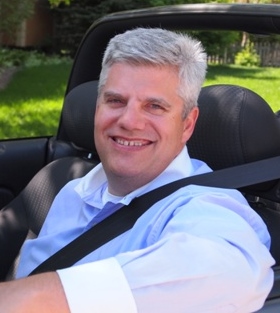 Dr. Matthew W. Ohland
Dr. Matthew W. Ohland
Professor and Associate Head of Engineering Education
Purdue University
West Lafayette, Indiana, USA
Matthew W. Ohland is Professor and Associate Head of Engineering Education at Purdue University. He has degrees from Swarthmore College, Rensselaer Polytechnic Institute, and the University of Florida. His research on the longitudinal study of engineering students, team assignment, peer evaluation, and active and collaborative teaching methods has been supported by the National Science Foundation and the Sloan Foundation and his team received Best Paper awards from the Journal of Engineering Education in 2008, 2011, and 2019 and from the IEEE Transactions on Education in 2011 and 2015. Dr. Ohland is an ABET Program Evaluator for ASEE. He was the 2002–2006 President of Tau Beta Pi and is a Fellow of the ASEE, IEEE, and AAAS.
Title: Monitoring and Improving Student Team Experiences
Abstract: There are many reasons to put students in teams – teaching them to work in teams, the learning benefits of collaboration, the diversity benefits of finding out other students’ perspectives, and the ability to provide a deeper level of feedback on the smaller number of assignments submitted by student teams are among them. For all these benefits, having students work in teams introduces other issues for faculty to manage – from forming teams to dealing with teams in crisis to evaluating how much each student contributed to assignments submitted as a team. CATME has helped many faculty form and manage teams, and has also enabled research suggesting better methods of managing student teams – research that has implications for the workforce as well. The talk will include a discussion of the challenges of managing virtual teams.
7:40 pm – 8:00 pm (Thursday, August 13)
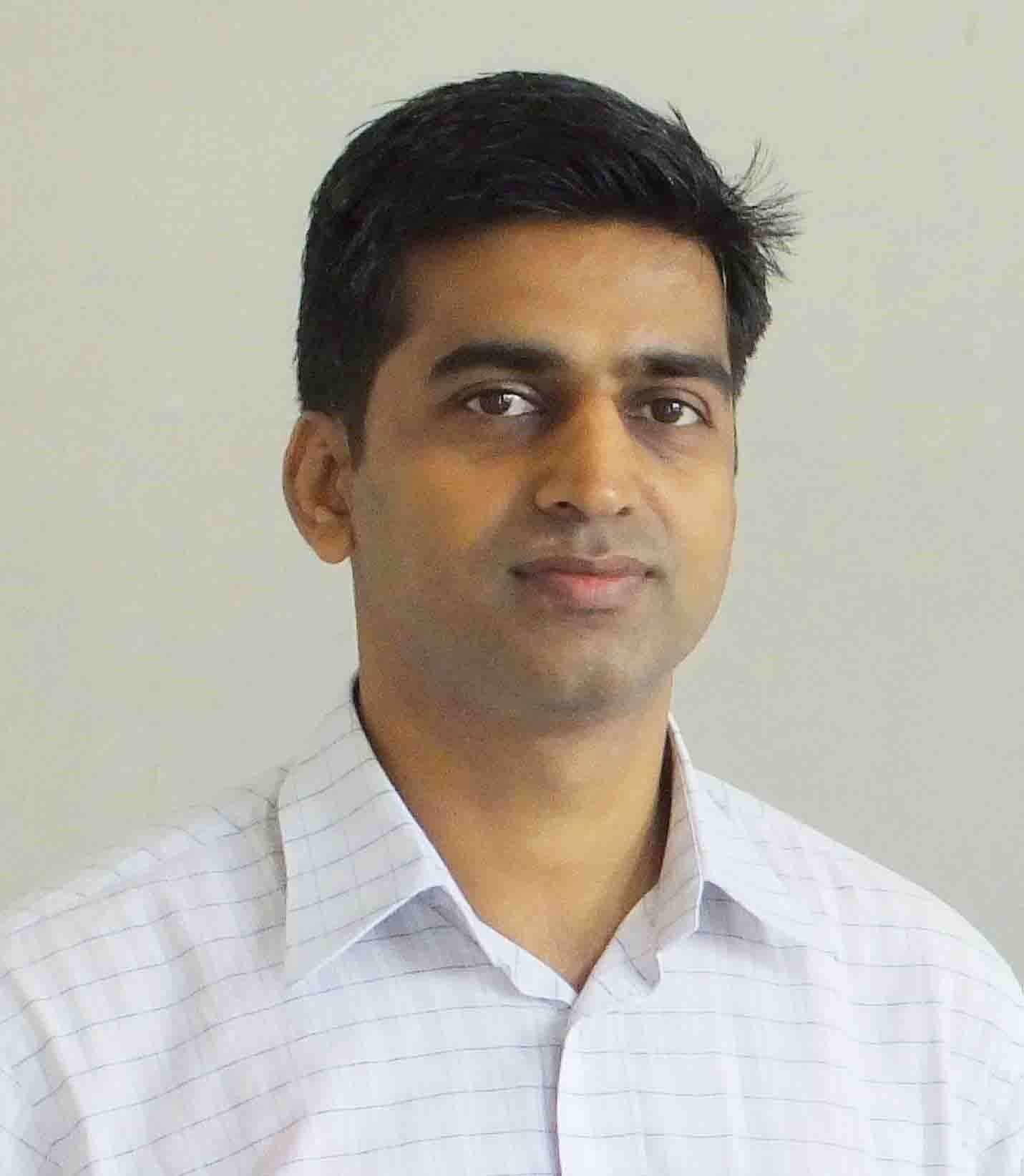 Dr. Rajeev Agrawal
Dr. Rajeev Agrawal
Associate Professor
Mechanical Engineering Department
Associate Dean (Research)
Malaviya National Institute of Technology Jaipur
Rajasthan 302017, India
Dr. Rajeev Agrawal is Fellow of The Institution of Engineer’s (IEI), India. He received his M.E. from MNNIT,Allahabad and Doctorate from BIT,Mesra. He is presently working as an Associate Professor in MNIT,Jaipur. Dr. Rajeev Agrawal is having more than 20 years of Professional Experience. He is a Member Editorial Board in the International Journal of Business and Systems Research (IJBSR) (Inderscience Publishers). He is actively involved in bringing industry orientation to the engineering education system in India working with several industries, statutory bodies and other R&D organizations. Demonstrating Research capabilities in terms of research papers published/presented (Including IEEE Explore Proceeding, Springer, Emerald and Science Direct and Inderscience Publishers) and currently having various sponsored and Industrial consultancy.Dr. Rajeev Agrawal currently managing a Research projects includes engaged in Autonomation, Lean Six Sigma, Supply chain Design and Reconfigurable manufacturing system (RMS). One of the objective of his current research is to address convert quickly for the production of new product by providing customized flexibility and can be improved, upgraded and reconfigured in response to fluctuating demands in automotive companies.
8:00 pm – 8:20 pm (Thursday, August 13)
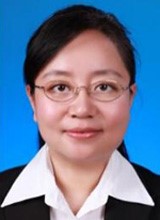 Jihong Yan, Ph.D.
Jihong Yan, Ph.D.
Professor in Industrial Engineering
Deputy Dean of School of Mechatronics Engineering
Head of intelligent Manufacturing Scientific Research Team
Harbin Institute of Technology
Harbin, China
Pathways to Success: Innovation and Entrepreneurship Education at HIT
Dr. Jihong Yan is a Professor (since 2005) in Industrial Engineering at Harbin Institute of Technology (HIT), she is also the deputy dean of School of Mechatronics Engineering and head of intelligent manufacturing scientific research team at HIT. She received her PhD from Harbin Institute of Technology in 1999. Then she joined Tsinghua University (from 1999 to 2001), the University of Wisconsin (from 2001 to 2004) and Pennsylvania State University (from 2004 to 2005) as a postdoctoral researcher. Dr. Yan is the director of National High-end Equipment Manufacturing Virtual and Simulation Experiment Teaching Center, head of Research Oriented Teaching Innovation Team for High-end Equipment Manufacturing of the Ministry of Industry and Information Technology of China, vice chairman of Production System Special Committee of Chinese Mechanical Engineering Society, and chairman of Industrial Engineering Professional Committee of the Mechanical Engineering Society of Heilongjiang Province.
Her main area of research is industrial big data, sustainable manufacturing, intelligent logistics and advanced maintenance of machinery. As a PI, Dr. Yan has worked on and accomplished 15 projects in intelligent manufacturing and sustainability related areas, funded by the NSF of China(NSFC), NSF-NSFC joint-project funding, National key R&D plan project funding, National High-tech project funding, National “863” project funding, EU EPSRC project funding, High-tech funding from industries, and so on. She has authored and co-authored over 100 research papers and published 3 books, two papers were ranked ESI high cited articles. Currently there are 17 professors and engineers with her research team, the team dedicates to theoretical research and system implementation in the fields of intelligent operation optimization theory and methods of manufacturing systems, manufacturing IoT technologies and devices, and equipment health monitoring, etc.
8:20 pm – 8:40 pm (Thursday, August 13)
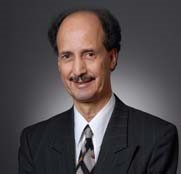 Dr. Daw Alwerfalli
Dr. Daw Alwerfalli
Professor and Director of Master of Engineering Management Program
A. Leon Linton Department of Mechanical, Robotics and Industrial Engineering
College of Engineering
Lawrence Technological University
Southfield, Michigan, USA
Prominent professor, senior technical industry consultant and manufacturing engineering educator with a tremendous expertise in program and curriculum development in higher technical education. Highly experienced and dedicated community leader with great ability to work with an array of constituencies and coalitions in developing shared organizational vision to create and implement strategies aimed at advancing common causes to accomplish goals in fulfilment of the organization’s mission. Highly perceived expert and industrial advisor. He is the founder of Manufacturing Engineering Solutions (MES) a consulting firm founded in 2000. He is senior technical consultant and strategist to the US manufacturing industry. MES developed executive training programs to numerous organizations such as Chrysler, Ford, GM, Exxon Mobil, Conco Philips, Marathon and Tier I and II suppliers to the US auto industry and other international companies. Published numerous research papers in many national and international conferences. Dr. Alwerfalli is a recipient of many prestigious awards including, the 2009 Arab American of the year in education, 1997 Lawrence Tech. Excellence in Teaching Award, 2004 Outstanding Engineering Faculty. He serves on many boards of directors, he also served on the Advisor Council of the Governor of Michigan for the Arab American and Chaldean Affairs Committee. He is currently serving on the steering committee of MAT 2 for dual education where he is a lead assessor to evaluate colleges for readiness in joining MAT 2 coalition of several German US based companies. Dr. Alwerfalli is also serving on the steering committee of “LIFT” Lightweight Innovation for Tomorrow, The committee is to develop innovative educational curriculum and skills for the next generation workforce for the Michigan, Ohio, Indiana and Tennessee under $148 Million, a federal grant for the year 2015-2016. For several years, Dr. Alwerfalli served as the academic advisor of many doctoral students who obtained their doctorate degrees and are currently leaders in the US auto industry.
8:40 pm – 9:00 pm (Thursday, August 13)
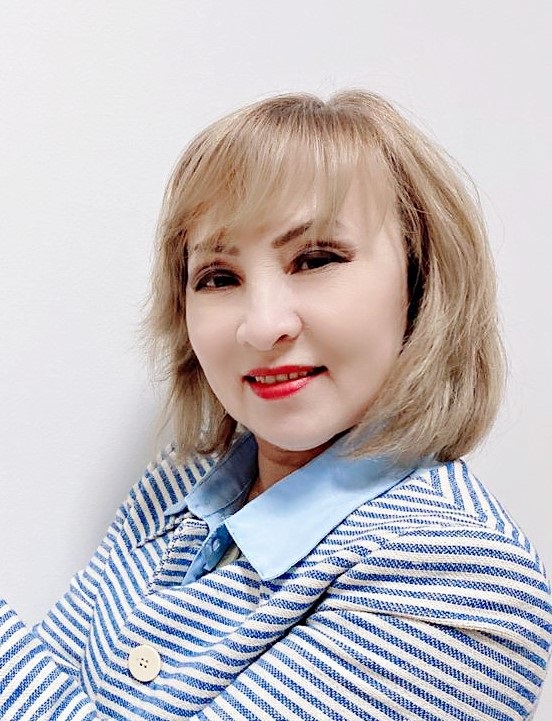 Dr. Gulnara (Gulya) Abitova
Dr. Gulnara (Gulya) Abitova
Business-Trainer, Lecturer, and Science Advisor
Professor at Almaty Management University (AlmaU)
Astana, Kazakhstan
Dr. Abitova graduated Postdoctoral Program in Control Systems from State University of New York (Binghamton, NY, USA). She has been an invited to Computer and Electrical Engineering Department at State University of New York at Binghamton (NY, USA) for Study. Gulnara Abitova was Invited Professor at the Savonia University of Applied Sciences and Technology (Kuopio, Finland).
Dr. Abitova holds Ph.D. Degree in Automation and Control from Eurasian National University named by L.N. Gumilyov (Kazakhstan), Ph.D. Degree (Doctor of Technical Sciences) in Automation of Metallurgy Production from National Academic Research Institute of Metallurgy and Enrichment of the Ministry of Education and Science (Almaty, Kazakhstan), and Master’s Degree in Cybernetics of Technological Processes from Moscow State University of Steel and Alloys (Moscow, Russian Federation).
She is Holder of Several International Grants and Scholarships: International Scholarship from State University of New York for Doctoral Research Work (USA); International Grant from the President of Republic of Kazakhstan – Scholarship for the study abroad (USA); Erasmus+ Program (Staff Mobility for Teaching Mobility Program) for giving the Lectures at Savonia University of Applied Sciences (Kuopio, Finland); International Grant from Erasmus Mundus Program for Staff Mobility Program (Bilbao, Spain, June); International Grant for the Educational Program (Singapore Management University – Chong Kong Chinese University); International Scholarship for Government Employees (KOICA, South Korea);
Gulnara Abitova is Business-Trainer, Lecturer, Science Advisor, Ass.Professor at Almaty Management University (AlmaU); Professor of Polylingual Education and Researcher in the School of Government Policy at the AlmaU (Almaty); Head of the Project Group and Ass.Professor at the Kazakh-Russian International University (Aktobe). Prior to this current position, she was Director and Executive Director of two Business-Companies (Group-Independent LLP; Best-Group NS LLP, Nur-Sultan); Vice-President of the Kazakh-Russian International University; Head of the System Analyses and Management Department, Director of the Department of International Cooperation, Director of the Science Department at the L.N.Gumilyov Eurasian National University (Astana, Kazakhstan); General Director of the Kazakh Information Technology Research Institute (KITRI, Kazakhstan); Deputy Director of the National Accreditation Center, Deputy Director of the Science Committee (Ministry of Education and Science, Kazakhstan); Department Director of the Postgraduate Studies (Eastern-Kazakhstan State University, Kazakhstan); Research Engineer in the Laboratory of Physical and Chemical Research (East-Kazakhstan Scientific Research Institute for Non-Ferrous Metals, Kazakhstan) and Researcher in the L.N.Gumilyov Eurasian National University (ENU, Kazakhstan).
Gulnara Abitova was also the National Coordinator of UNESCO’s Education for Sustainable Development, Ministry of Education and Science of Kazakhstan (UNESCO-Kazakhstan). The same time she was a member of many Working Groups and Temporary Committee of the Ministry of Education and Science (Kazakhstan, 2003-2012). She has been the Distinguished Speaker at Global Engineering Education Forum of IEOM, Invited Speaker at the International Conferences (IEEE, SPIE, CSDM, ICUMT) and published more than 80 research articles in the reputed international proceedings and journals. She served as the Track Chair in the IEOM conferences.
Dr. Abitova’s current research interest includes: control systems and industrial automation; online technology and digital education; project management and green energy; simulation and design of control systems; cybernetics and cloud technology; business management and education and science policy.
9:00 pm – 9:20 pm (Thursday, August 13)
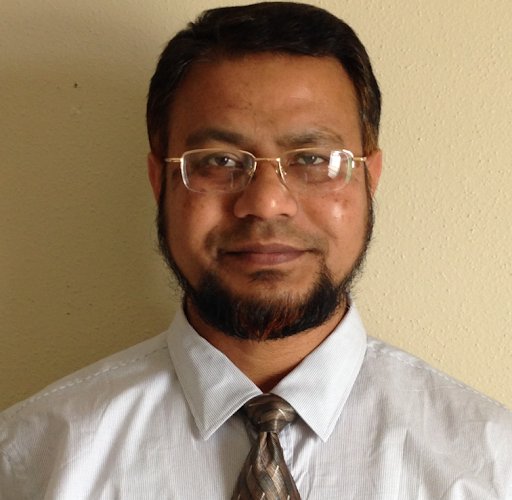 Mohammad Anwar Rahman, Ph.D.
Mohammad Anwar Rahman, Ph.D.
Associate Professor
Program Coordinator: Supply Chian & Logistics Management (MS)
School of Engineering & Technology
Central Connecticut State University
1615 Stanley St., New Britain, CT 06053
Dr. Mohammad Anwar Rahman is a faculty at the Central Connecticut State University in Manufacturing and Construction Management. He has published papers in referred journals and presented results in conferences. His research focuses on logistics, supply chain management, stochastic process and designing quality procedure. Dr. Rahman conducted several research projects with Mississippi Dept. of Education (MDE) and US Dept. of Transportation (USDOT). He has various certifications including Lean Six Sigma Green Belt (Purdue University), Lean Principles (Purdue University), Demonstrated Master Logistician (The International Society of Logistics), Malcolm Baldrige Quality Award Examiner (Louisiana Quality Foundation), and Certified Transportation & Logistics (American Society of Transport & Logistics). Dr. Rahman is affiliated with ISERC, DSI, AST&L and IEOM.
9:20 pm – 9:40 pm (Thursday, August 13)
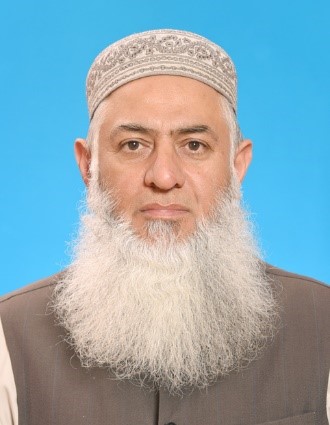
Anjum Ali, Ph.D.
(Retd.) Professor of Electrical Engineering, FAST-NU, Lahore, Pakistan
Ex. Associate Professor of Computer Engineering, LUMS, Lahore, Pakistan
Ex. Professor of Computer Science and Engineering
Dr. Anjum Ali completed his Ph.D. degree in August 1988 from the University of Alabama, Huntsville, Alabama, U.S.A. He has been teaching Electrical and Computer Engineering subjects since March 1978. His first teaching appointment, as a lecturer of Electrical Engineering, was at the University of Engineering and Technology (UET), Lahore, Pakistan, after winning gold medals in each of the last three years of his undergraduate engineering education.
His teaching experience includes twelve years at Mercer University, Macon, Georgia, USA, and about nine years at three different universities in Saudi Arabia. At Mercer University (1988-1999), he was the lead faculty member who developed the Computer Engineering curriculum series, from the first undergraduate course in the area to various MS level electives.
He has also worked, as an associate professor, at the Lahore University of Management Sciences (LUMS), Lahore, Pakistan, from 1996 to 1998. During his stay at LUMS, he developed the computer engineering portion of the CS curriculum, and helped the university transition from the quarter system to the semester system.
He served as the chairman of the Electronics Engineering and Instrumentation Department at the Hail Community College (now University of Hail), Hail, Saudi Arabia, from February 2000 to June 2002. During his stay there, he developed a four-year degree program in Electrical Engineering for the University of Hail.
Dr. Anjum Ali moved to Pakistan in July 2002, and joined Al-Khawarizmi Institute of Computer Science (KICS) at the University of Engineering and Technology, Lahore, as a professor in December 2002. During his stay at KICS, he initiated many research and development projects and won research grants.
He has been a professor of Electrical Engineering at the National University of Computer and Emerging Sciences, (FAST-NU), Lahore, from May 2005 to May 2018. He was the Head of Electrical Engineering from March 2007 to September 2013, and during this time he developed multiple long-range policies and procedures for the university, which are still in place. He was also the Acting Director, Lahore Campus, at different occasions during his stay at FAST-NU, Lahore.
Dr. Anjum Ali was the convener of the National HEC Computer Engineering curriculum development committee. The HEC committee (NCRC) developed and finalized the 2009 HEC Computer Engineering Curriculum for all Pakistani universities.
Dr. Anjum Ali has taught many EE, CE and CS courses and supervised numerous graduate as well as undergraduate students during his 40 years of teaching career. He has over 30 conference and journal publications. He is also the founding editor of the FAST-NU Research Journal. His areas of current research interest include embedded control systems and computer architecture.
After retirement from FAST-NU, Dr. Anjum Ali is leading a research and development company in Atlanta, GA, USA, as its president and CEO.
9:40 pm – 10:20 pm (Thursday, August 13)
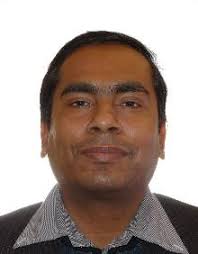 Dr. Shamsul Huda
Dr. Shamsul Huda
Lecturer in Computer Science
Cyber Security Research and Innovation Centre (CSRI)
School of Information Technology
Faculty of Science Engineering and Built Environment
Deakin University
Burwood, Victoria, Australia
Cyber security for industrial control systems and networks: vulnerabilities, targeted attack and challenges
Shamsul Huda received his PhD degree in computer science at the Centre for informatics and applied optimization (CIAO) at Federation University Australia. Currently he is a Lecturer in School of Information Technology, Deakin University, Australia. Prior to join Deakin, he worked as an academic in Federation University and as an Assistant Professor in Khulna University of Engineering and Technology (KUET), Bangladesh. Dr Huda is a Certified Information System Security Professional (CISSP) by The International Information System Security Certification Consortium, (ISC)² . He is also a member of Cyber Security Research and Innovation Centre (CSRI) at Deakin University. Dr Huda is involved in many international cyber security projects including Cybersecurity capacity maturity for nations at Oceania Cyber Security Centre (OCSC), Melbourne with partnership of the Global Cyber Security Capacity Centre (GCSCC) at the University of Oxford. His main research areas are Cyber risk assessment for critical assets and services, National and portfolio level cyber strategy development, strategies for secure operations for Industrial Control systems (SCADA) and Critical infrastructure, Intelligent counter measure for threats against Mobile system, detection of data breaches through the darknet, IoT security, Malware analysis and detection, reverse engineering for endpoint security, malware analysis and detection for SCADA systems. He has published more than 60 journal and conference papers in well reputed journals including IEEE Transactions.
He received MSc. in Computer Science and Engineering from Bangladesh University of Engineering and Technology, BUET and Bachelor of Science in Electrical and Electronic Engineering from Khulna University and Engineering and Technology, KEUT, Bangladesh. Dr. Huda was a faculty member in Computer Science department, Khulna University of Engineering and Technology, Bangladesh. He was a Programmer – Software development and network administration, Controller of examination section, Bangladesh University of Engineering and Technology, Bangladesh (BUET). Dr. Huda is a member of IEEE.
August 14, Thursday, 4:00 pm – 6:00 pm – Room 1
VIRTUAL Awards Recognition
Past Programs of IEOM Global Engineering Education
- 2014 IEOM Bali Global Engineering Education Speakers
- 2015 IEOM Orlando Global Engineering Education Speakers
- 2015 IEOM Dubai Global Engineering Education Speakers
- 2016 IEOM Kuala Lumpur Global Engineering Education Speakers
- 2016 IEOM Detroit Global Engineering Education Speakers
- 2017 IEOM Bogota, Colombia
- 2017 IEOM Bristol, UK
- 2017 IEOM Rabat Global Engineering Education Speakers
- 2018 Pretoria – IEOM Global Engineering Education
- 2018 Washington DC – IEOM Global Engineering Education
- 2018 Paris – IEOM Global Engineering Education
- 2018 Bandung – IEOM Global Engineering Education
- 2019 Riyadh – IEOM GEE
- 2019 Toronto – IEOM Global Engineering Education
- 2019 Pilsen – IEOM Global Engineering Education
- 2019 Bangkok – IEOM Global Engineering Education
- 2020 Dubai- IEOM Global Engineering Education
- 2020 Detroit GEE
(Click on the name of the speakers for pdf presentation file)
- Dr. Jinwoo Park
- Prof. Don Reimer
- Dr. Hongyi Sun
- Dr. Ilham Kissani
- Dr. Eugene Rex Jalao
- Dr. Gulnara Abitova
- Dr. James Chen
- Dr. FJ Kahlen
- Dr. Erik Sundin
- Dr. Abdul Hakim Halim
If you have any question about IEOM Conference and/or IEOM Society, please contact: info@ieomsociety.org.
